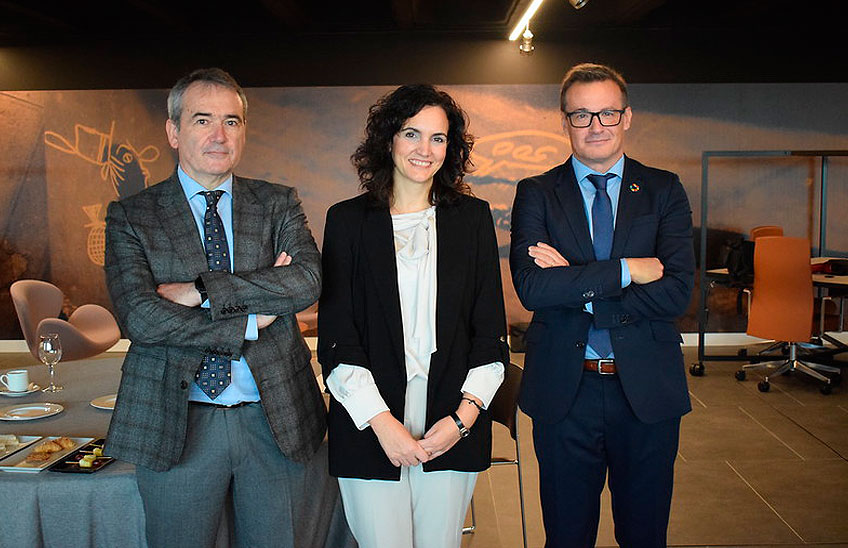The rigor of science and business innovation, together with the search for the common good, key to sustainable progress

PhotoCedit/
01 | 12 | 2022
True progress looks after the long term deadline, aims to improve people's quality of life without compromising the natural heritage, and is not based on increased consumption. This was stated by the speakers at the second session of "Bioma Talks", a cycle that is held in person at the University of Navarra's campus in Madrid and that generates dialogue between academics and businessmen in favor of sustainable social development .
Eduardo Ayesa, researcher of Ceit and professor at the School of Engineering of the University of Navarra, was one of the speakers. He stated that "progress that does not collaborate in the construction of a better world is not progress: health, opportunities, inclusion, heritage conservation... Because there are not two separate crises, one environmental and the other social, but rather the changes affect the whole. The criterion for discernment -he advised- must be the common good, and this is being implemented by the industry".
A citizenry prepared for change
Also participating in the dialogue was Joaquín Suescun, director of Economics circular and green transformation at Veolia Group, who presented the main conclusions of a study recently conducted by the company on social awareness of climate change. "Doing nothing would be too expensive socially and economically" is the widespread thought of the population, said Suescun. "The public," he added, "knows that the future is uncertain and is sample open to incorporating changes in their daily lives, while encouraging companies to quickly undertake innovative actions, albeit of uncertain effectiveness, as long as these actions generate a social benefit and their results can be measured and evaluated. For all these reasons, during his speech, Joaquín Suescun defended the need to foresee and measure the impact of technology on the economic and social development .
Both speakers agreed, therefore, on the existence of greater social awareness. "Before, legislation was the only thing that generated changes, but now those of us who work in technology centers and industry are driven by the fact that we care for people and the environment. For example, we regenerate a city to improve people's quality of life. This awareness, together with the existence of European funds, will undoubtedly be the driving force for significant improvements," said Ayesa. In this sense, he insisted that "the role of engineering is to make things more efficient, but it is important that what is sustainable is also economically viable. We have detected solutions that are good and will be profitable in the future, but public aid should be directed to make possible the initial investments and these solutions are provided by the university and technology centers and the research", alluding to the funds that Europe is allocating in the ecological transition.
Economics circular: making the most of everything
According to Suescun, whose business focuses its activity on the sanitation of wastewater to turn it into a resource source "we are not so concerned about water pollution - a problem that has already been addressed - but rather about making the most of everything and making the most of all resources, generating a real circular Economics between all of us". Ayesa agreed and added the importance of giving the university a voice in the global conversation on sustainability, "because favoring a professional and independent voice, without political ties or economic interests, will improve the public discussion and make it more truthful and honest, therefore, more productive and fair".
The moderator of discussion was Paloma Grau, Vice President of research and Sustainability of the University of Navarra, who, although she stated that water consumption has doubled in just one century, pointed out that there are signs of improvement, and that between the year 2000 and 2020 improvements can already be detected in the resource of water. "Modernity was promoted to access resources that were scarce," he said, "but now that we have our basic needs more than covered, we generate new needs, and that leads to excessive consumption. Paloma Grau stressed that "we are the first generation that is concerned about caring for the planet as such" and recalled the enormous importance of the university in terms of promoting and training students in the skills needed for the professions of the future, at training in entrepreneurship and innovation.
Common good, partnership, speed and creativity were the words most heard in this second session of "Bioma Talks".
